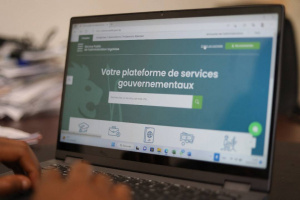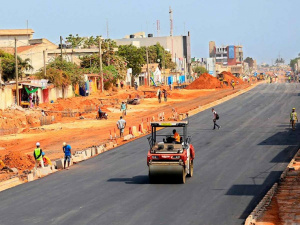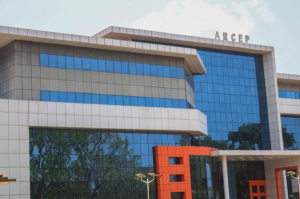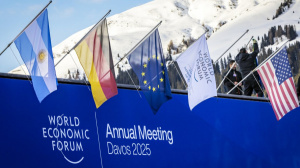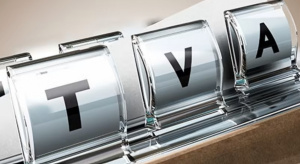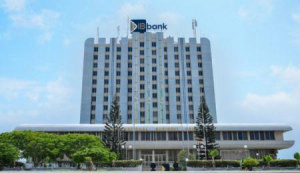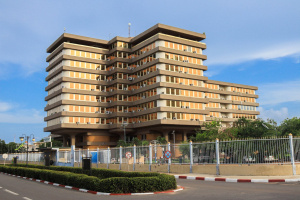Togo First
Togo: Inflation at 2.9% in 2024, Against 5.3% in 2023
Togo recorded an inflation rate of 2.9% in 2024, against 5.3% and 7.6% in 2023 and 2022, respectively. The drôp, reported by the country’s statistics institute (INSEED), is the highest in 30 years. The INSEED attributes it to lower food prices and subsidies for fuel and electricity.
Slight Rise at Year-End
Last month, price increases caused a slight uptick in living costs, though still 2.9% lower than in December 2023. However, from November to December 2024, the figure slumped 3.1%, reflecting easing inflationary pressures.
Between November and December 2024, the National Harmonized Index of Consumer Prices (INHPC) rose by 0.5%, driven by higher costs for food and non-alcoholic beverages (+1.2%) and housing utilities (+0.9%). Transportation costs decreased by 1.2%, helping to moderate the overall increase.
Annual Price Changes
Prices rose by 1.2% compared to December 2023, with fresh vegetables and solid fuels contributing to this increase. Conversely, fuels and lubricants saw a notable decline of 3.2%, according to INSEED.
This article was initially published in French by Ayi Renaud Dossavi
Edited in English by Ola Schad Akinocho
Togo: EU Launches Photo Competition to Promote Blue Economy
The European Union (EU) Delegation in Togo has launched a photo competition to promote the upcoming "BlueInvest Africa 2025". The competition aims to select a key image representing the event.
BlueInvest Africa, initiated by the European Commission in 2022, is a platform that connects African entrepreneurs in the blue economy with international investors. This economy includes various activities related to the ocean and water, such as traditional fishing and innovative biotechnologies.
The event is important for Togo as it seeks to establish itself as a regional logistics hub.
The competition is open to all photographers residing in Togo, regardless of their experience level.
Entries must be submitted by February 3, 2025.
Togo: Six New Online Services from the Ministry of Security
The Ministry of Security and Civil Protection in Togo now offers six services online through the Service Public platform.
The services include requesting permission for tinted windows, electrifying barbed wire, obtaining security coverage for private events, requesting entry into Togo, reporting incidents involving law enforcement, and sending suggestions to the Ministry.
This move is part of Togo's effort to digitize public services and simplify administrative processes. The option to report incidents involving law enforcement was announced recently.
Users can submit requests and make payments directly on the platform.
Togo Allocates CFA72 Billion for Road Development in 2025
Togo will spend CFA72 billion to build and rehabilitate its roads this year. This is 14% less than last year–CFA84 billion.
The new figure, set under the 2025 Finance Act, represents 78% of the budget allocated to the Ministry of Infrastructure, CFA92 billion. Part of the funds will be used to complete and asphalt roads under construction. They will also support new road projects, and help advance a project to rehabilitate 180 km (about 112 miles) of roads. The latter project was announced last year.
These initiatives align with the government's goal to modernize Togo's extensive road network, which spans over 11,700 km (about 7,300 miles). The objective is to improve traffic flow within Togo and bolster its position as a regional logistics hub.
Recently, construction began on the Sokodé bypass, located approximately 340 kilometers north of Lomé. This project involves building 16 kilometers of road, divided into two main sections: the Tchalo-Kpario section, measuring 12.7 kilometers, and the Kpario-Kidèoudè section, which is 3.3 kilometers long.
This article was initially published in French by Esaïe Edoh
Edited in English by Ola Schad Akinocho
Togolese Telecom Watchdog Lowers Wholesale Telecom Rates
Togo’s telecom regulator, ARCEP, has set new price limits for wholesale services at the country level. The change is effective since January 16, 2025.
The amendment significantly lowers costs. For example, the monthly rental price for dark optical fiber has been reduced by 60%, from CFA75 to CFA30 per linear meter. The goal is to make it easier and cheaper for operators and internet service providers to access national and international transmission networks.
This change comes after a cost audit covering TOGOCOM and MOOV AFRICA TOGO. The ARCEP aims to achieve two main things with this initiative: to promote broadband internet expansion in Togo's inland areas and to foster competition in the retail market. This should help reduce prices for consumers.
Additionally, an August 2022 decree about sharing passive infrastructure supports these efforts. Overall, the aim is to create a fair and competitive market while helping the government's digital reforms.
In response, the Authority "calls on the operators concerned to comply immediately and scrupulously with this decision, while urging all fixed and mobile operators present on the market to work to accelerate the coverage of broadband services," according to a press release.
Ayi Renaud Dossavi
Davos 2025: Togolese Minister of Digital Economy to Present Togo’s Digital Transformation Vision
Cina Lawson, Togo's Minister of Digital Economy and Digital Transformation, is in Davos, Switzerland for the World Economic Forum (WEF). During the event, which opened on January 20 and ends on January 24, Lawson will share the Togolese vision for digital transformation.
Among others, Lawson will cover artificial intelligence (AI), how it should be governed, and the leadership needed during this technological change. She will also share her thoughts on fostering an inclusive and innovative future based on Togo's experiences in the digital field.
Honorée de participer au Forum Économique Mondial (@wef) 2025, une tribune majeure pour échanger sur les défis mondiaux et explorer des solutions innovantes.
— Cina Lawson (@cinalawson) January 20, 2025
Je m'exprimerai principalement sur l'#IA, sa gouvernance et le leadership adapté à son ère, des sujets clés pour… pic.twitter.com/patfErwzXG
The Minister will also try to establish partnerships with other attendees to secure funding for projects supported by the Togolese government, especially for digitizing public services.
Launched in 1971, the WEF is an annual meeting that gathers global business leaders, politicians, academics, and influential bankers. It aims to foster international cooperation on important political, social, and economic issues.
This article was initially published in French by Esaïe Edoh
Edited in English by Ola Schad Akinocho
Togo Raises VAT Threshold to CFA100 Million for Businesses
The Togolese government has increased the minimum turnover required for businesses subject to the Value Added Tax (VAT). The change, in effect since January 1, 2025, brings the figure to CFA100 million, against CFA60 million before. The country’s tax office, OTR, recently recalled the increase, which is included in the 2025 Finance Act.
According to the OTR, the measure applies to natural and legal persons. The tax also informed that VAT-subject businesses that missed the new threshold in 2024 must fulfill their tax obligations by December 31, 2027. In the meantime, they must continue to invoice, declare, and pay VAT, even if their sales are under CFA100 million.
Regarding the why of the threshold increase, the OTR said it aims to reduce the tax burden on small and medium-sized enterprises (SMEs). This adjustment is part of a broader effort to align the tax system with local economic conditions.
Philippe Tchodié, General Commissioner of the OTR, warned that “Businesses that exceeded the old threshold but fail to meet the new by the set deadline would lose their VAT status. Businesses that want to relinquish the status before the deadline must formally ask the Tax Commissioner”.
It should be noted that businesses can voluntarily choose to be subject to VAT. In this case, they must comply with tax obligations for at least five years according to the General Tax Code (CGI).
Certain professions are automatically subject to VAT regardless of their sales figures. This includes lawyers, notaries, maritime experts, freight forwarders, and other specific professions.
This article was initially published in French by Esaïe Edoh
Edited in English by Ola Schad Akinocho
Banking: Togolese Government Buys Back UTB and IB Headquarters
The Togolese government has repurchased Union Togolaise de Banque (UTB) headquarters and IB Bank to help stabilize these struggling banks, which hold 20% of Togo's banking sector assets. The IMF has advised that after UTB completes its restructuring, the government should consider privatizing the lender.
Last year, the government took control of the buildings. These banks account for 20% of Togo's banking sector assets. The IMF confirmed that buying UTB's head office alone cost CFA31 billion.
UTB: Positive Equity at Last
UTB has struggled with negative equity for years, but it is starting to recover thanks to this acquisition and an additional capital injection of CFA12.6 billion. An independent audit shows that the bank is getting closer to meeting the capital requirements set by the WAEMU Banking Commission. However, a restructuring plan must be completed by April 2025, with full implementation by October. During this time, UTB will remain under public control before being privatized.
This plan will be based on findings from an external audit conducted in 2023 and aims to ensure UTB's profitability and stability while it is still publicly owned. The IMF encourages authorities to pursue privatization soon after restructuring to reduce long-term financial risks.
IB Bank: Mixed Signals
IB Bank, which was sold to Burkinabe businessman Mahamadou Bonkoungou in 2021, has had mixed results. Selling its former headquarters has eased some financial pressure and improved its regulatory capital but has not guaranteed stability. A reform plan is already in place and has been submitted to the banking commission. This plan includes increasing capital from private sources, reducing loans linked to shareholders, and withdrawing loans from institutions with negative equity. The IMF warns that without significant private investment and these reforms, IB Bank will continue to face structural challenges.
Despite these issues, IB Bank is starting to recover. After several years of losses, it returned to profit in 2024. Reports suggest these positive results should continue this year, supported by significant write-backs of provisions and a focus on government commitments.
A Hefty Bill
These actions are costly. The Togolese government set aside over CFA69 billion ($108.2 million) in its 2024 budget to support both banks. The IMF notes that this spending could worsen an already strained public deficit, estimating that restoring the banking sector might cost 1.5% of GDP.
According to the Togolese officials, there is a need to improve governance and economic fundamentals to prevent the banking sector from declining further. Some IMF documents reviewed by Togo First reveal that two smaller banks representing 9% of sector assets have started failing to meet prudential standards according to IMF documents. The same source indicates that one bank exceeds limits on non-operational assets and capital requirements; the other breaches risk concentration standards.
Fiacre E. Kakpo
Umoa-Securities: Togo Targets CFA20 Billion for Next Issue
Togo plans to issue its second operation on the West African Monetary Union (WAMU) public securities market next Friday, January 24. The treasury will issue fungible bonds (OATs) and fungible bills (BATs) to raise CFA20 billion.
In detail, Lomé plans to raise CFA10 billion via the BATs, and the same via the OATs. The former securities have a face value of CFA1 million, multiple interest rates, and mature over 364 days, while the latter securities have a nominal value of CFA10,000, an interest rate of 6.25%, and mature over three years.
Proceeds will help fund Togo's 2025 budget, set to stand at CFA2,397 billion, income and expenses.
Togo targets CFA332 billion on the WAMU market this year. It has already secured CFA22 billion in its first issue.
Esaïe Edoh
Togo Launches "Investment Readiness" Program for Startups
Applications for the "Investment Readiness" program are open. The program helps Togolese startups learn how to raise money, organize their projects better, and attract investors. It is run by the Ministry of Digital Economy and backed by the European Union(EU).
The six-month program, supported mainly by the European Union (EU), will offer practical training, personalized coaching, and chances to connect with experts. The goal is to create funding strategies matching each company's growth stage and help them better communicate with investors.
This initiative is part of the Togolese government's efforts to promote technological innovation, especially in the digital field. To apply, businesses need to meet certain criteria, including having a viable business model, being innovative, making an impact, having financial capacity, and being ready to raise funds.
Applications are open until February 3, 2025.



